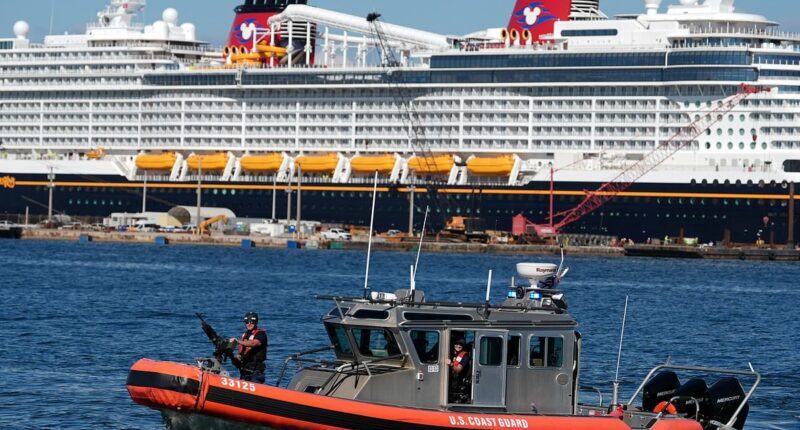Share this @internewscast.com

The U.S. Coast Guard is vehemently denying a startling report claiming the branch intends to reclassify swastikas, traditionally seen as symbols of hate, as merely ‘potentially divisive.’ The Washington Post recently revealed that under forthcoming guidelines, this notorious Nazi emblem—long associated with fascism and antisemitism—would be redefined. The same goes for nooses and the Confederate flag, although the latter would still be prohibited from display. Additionally, the new policy proposes reducing the timeframe for service members to report the presence of a noose or swastika to just 45 days, a change critics argue could deter reports, especially since Coast Guard deployments can last several months. Previously, there was no time restriction for such reports.

A Coast Guard official expressed concern to the Post, questioning the safety of individuals who might discover such symbols among their colleagues. “If you are at sea, and your shipmate has a swastika in their rack, and you are a black person or Jew, and you are going to be stuck at sea with them for the next 60 days, are you going to feel safe reporting that up your chain of command?” the official stated. The Post’s article included a comparison of the current 2023 policy with the forthcoming one due to be enforced on December 15. The existing policy lists symbols like nooses, swastikas, supremacist symbols, Confederate symbols, and anti-Semitic symbols as potential indicators of hate incidents.

The 2023 policy specifies that these symbols are associated with hate incidents due to their adoption by groups espousing supremacy and intolerance. However, the updated November 2025 policy describes such symbols as ‘potentially divisive,’ including nooses, swastikas, and any imagery adopted by hate-based organizations to represent supremacy, racial or religious intolerance, or other biases.

On Thursday, the acting Commandant of the Coast Guard, Admiral Kevin Lunday, argued that the fresh wording did not represent a policy change. ‘The claims that the U.S. Coast Guard will no longer classify swastikas, nooses or other extremist imagery as prohibited symbols are categorically false,’ Lunday said in a statement posted on X. ‘These symbols have been and remain prohibited in the Coast Guard per policy.’ Lunday said any display of these symbols would be investigated and violators would be punished.

‘The Coast Guard remains unwavering in its commitment to fostering a safe, respectful and professional workplace,’ he said. ‘Symbols such as swastikas, nooses and other extremist or racist imagery violate our core values and are treated with the seriousness they warrant under current policy,’ Lunday added. The report on Nazi insignia comes at a time when anti-semitism is roiling the Republican Party, which has split over its longtime allegiance to Israel and its military pursuits.

White House press secretary Karoline Leavitt ignored a question about the Coast Guard story during her Thursday briefing, moving on quickly after the same reporter had asked her about President Donald Trump calling a journalist ‘piggy.’ The policy change attracted fury online. ‘A swastika is a hate symbol, plain and simple. If Kristi Noem thinks that’s up for debate then she has no business overseeing our Coast Guard. We should be doing everything we can to combat rising antisemitism. Why on earth would anyone in DHS make this change?’ commented Democratic Nevada Senator Catherine Cortez Masto. The Department of Homeland Security oversees the Coast Guard during peacetime, meaning Noem is in charge.

Illinois Governor JB Pritzker, a likely 2028 Democratic White House hopeful, also chimed in. ‘I helped build a Holocaust museum so future generations would understand the horror of the swastika – not watch our own government rebrand it, the noose, and the Confederate flag as merely “potentially divisive,”‘ Pritzker posted to X. Trump has made several moves to restore Confederate imagery in the United States, after statues were taken down and military bases were renamed in the aftermath of the Black Lives Matter protests during the summer of 2020.

Late last month, a statue of Confederate General Albert Pike was reinstalled in a park near the headquarters of the Labor Department in Washington, D.C. In recent weeks, the president has also said glowing things about the Confederate General Robert E. Lee. In October, as the president discussed what’s being called the Arc de Trump – an archway Trump wants to see installed to mark the country’s 250th anniversary next year – he noted how that spot was going to be used for a Lee statue in the early 1900s. ‘Would have been OK with me,’ Trump said. ‘Would have been OK with a lot of people in this room.’











